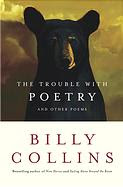Kansas City depends a lot on the way
You look at it. If you approach from the West,
It takes on a certain weary beauty:
Misguided, uninspired, familiar.
But driving through from the East,
It's just another group of grubby people
After you thought you'd passed all that.
Lying partly on ground that considered
Being a bluff, and partly on the plain,
It's a city where different states are possible
For people who don't often get that kind of choice.
In the middle, running nowhere from nowhere,
Is the Missouri, a river that moves off
Like a lake that got a little restless.
There are a few office buildings, from the late
Thirties, which is when the government stopped
Giving them away, and when folks here stopped
Worrying about keeping up with the times.
The city pumps out smog, absentmindedly,
Because that is what big cities do.
You don't know you loved it till you left it;
From now on there isn't much of anything:
Several towns like Abilene, which mean a lot
In the movies, and one or two ghost towns,
If you want to be where other people
Decided not to be. Steadily, inexorably,
The desolation opens out in front of you...
There is some satisfaction in realizing
That it's just as bad as you heard it was.
The sun burns everything jackrabbit brown,
And nothing grows high enough to be noticed.
Infrequently, and in questionable taste,
There are garish green spots of irrigation
Where someone just gave it up and stayed.
Before long you have traveled to the point
Where it would be pointless to turn back.
The next point of reference is twenty miles off,
An ill-defined part of the horizon,
A slight rise like the one twenty miles back.
You find so much ground to pass over
That covering it quickly isn't much help.
On the only radio station, a voice explains,
In an accent you wouldn't have thought possible,
The most practical way of doing something
It would never have occurred to you to do.
The voice is distant and doesn't seem aimed at you.
By now you've lost track of precisely
What you had in mind. You move on because
For some reason you have come here to do that,
Although what you are doing is completely
Unremarkable. You wouldn't know to look around,
But they take this route every day; incredibly,
People far worse equipped than yourself
Did the same thing a long time ago.
You move on because somewhere up ahead,
If you remember right, if you're going the right way,
If everything they told you was true...
There is a place called Colorado where you will,
Of course, be very glad to arrive, where the others
Wanted to go; and you will sit smug in the shade
High up on a mountain, feeling the wind
Send shivers over your body, looking back
At the great sickening swoop of the plain
And think it part of a grand design:
Satisfying, necessary, even beautiful.
-- By George Bradley, from Terms to Be Met. © Yale University Press, 1986.





